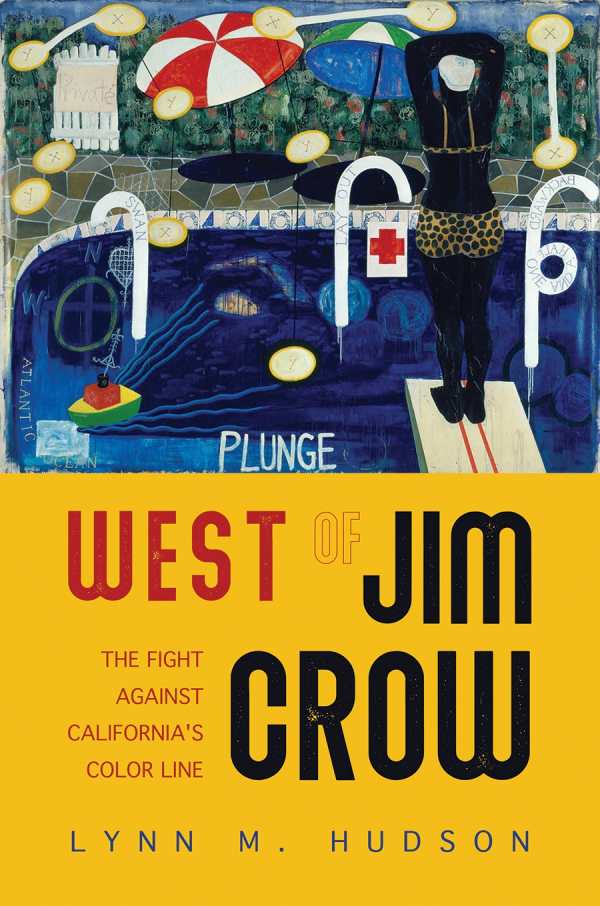West of Jim Crow
The Fight against California's Color Line
California’s history of racist legislation against Black Americans is brought to light in Lynn M. Hudson’s West of Jim Crow.
Attracted by the promise of economic opportunity and freedom from enslavement and Jim Crow, Black Americans moved to California to create a life on their own terms. But once there, they encountered the same type of racial segregation that they thought they had left behind. Hiding behind a veneer of equal opportunity, the codification of California’s racist policies was already in progress when, in 1850, it became the thirty-first state of the Union. As the state’s population grew, so did the number of laws aimed at keeping racial groups separated, creating battlegrounds with public transport, schools, swimming pools, and state fairs.
Black voices are centered in this thorough account of the state of California’s strategies for keeping Black Americans from benefiting from the promises of the Golden State. Contemporary court records, interviews, and Black news media reveal the tactics used by Black activists from inside the community—tactics that were later refined by civil rights activists in the South. Of particular interest are the ways that Black women navigated not only the white supremacist environments they lived in, but also the patriarchy found within the Black community, where men’s voices were favored over women’s.
The narrative is grounded in the work and experiences of Black individuals, including Mary Ellen Pleasant, Ruby McKnight Williams, and baseball player Jackie Robinson, whose hometown was the segregated city of Pasadena. This approach results in authenticity, while photographs of the individuals featured in the narrative help to bring the named experiences to life.
West of Jim Crow is a thorough account of California’s racist history that furthers understanding of racism in the United States.
Reviewed by
Erika Harlitz Kern
Disclosure: This article is not an endorsement, but a review. The publisher of this book provided free copies of the book to have their book reviewed by a professional reviewer. No fee was paid by the publisher for this review. Foreword Reviews only recommends books that we love. Foreword Magazine, Inc. is disclosing this in accordance with the Federal Trade Commission’s 16 CFR, Part 255.

